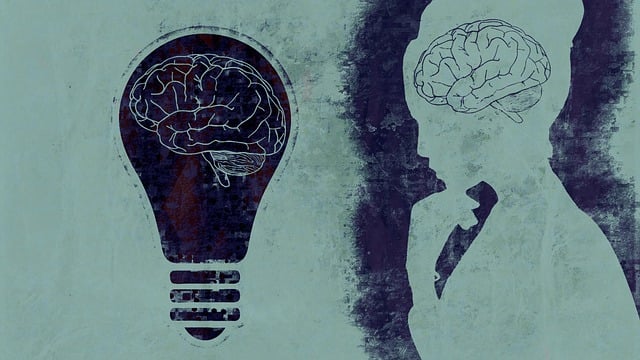Mental health crisis hotlines are 24/7 resources offering immediate support, confidential spaces, and non-judgmental guidance for individuals facing emotional distress or superior workplace issues and job stress therapy. These entry points into mental health education connect users to broader resources, fostering supportive environments for managing work-related mental health challenges. In today's high-pressure work environment, these hotlines are indispensable for maintaining a healthy and productive workforce. By integrating professional counseling and stress reduction methods, organizations enhance employee well-being, improve job satisfaction, reduce absenteeism, and boost performance. Recognizing severe emotional distress, accessing confidential hotlines, and following up with self-care routines can prevent burnout. Case studies show these services connect workers with expert therapists for long-term solutions to superior workplace issues and job stress therapy, leading to improved mental wellness and reduced turnover rates.
Mental health crisis hotline support services play a crucial role in addressing superior workplace issues and job stress therapy. In today’s fast-paced world, these 24/7 resources provide immediate assistance for employees facing emotional turmoil. This article delves into the significance of mental health crisis hotlines, their impact on workplace dynamics, and practical strategies for effective access. We also explore compelling case studies highlighting the real-life benefits and success stories associated with these vital services.
- Understanding Mental Health Crisis Hotlines
- The Role of These Services in the Workplace
- How to Access and Utilize These Resources Effectively
- Case Studies: Real-Life Impact and Success Stories
Understanding Mental Health Crisis Hotlines

Mental health crisis hotlines are vital resources designed to provide immediate support and guidance during moments of intense emotional distress or when one is grappling with superior workplace issues and job stress therapy. These services offer a confidential and non-judgmental space, where individuals can connect with trained professionals who can assist them in navigating their mental health challenges. Often, these hotlines are accessible 24/7, ensuring that support is readily available whenever it’s needed.
The effectiveness of crisis hotline support lies not only in the immediate relief they offer but also in their role as entry points into broader mental health education programs design and public awareness campaigns development. By utilizing these services, individuals can be connected to further resources, leading to improved risk management planning for mental health professionals and ultimately fostering a more supportive environment for addressing workplace issues and job stress therapy.
The Role of These Services in the Workplace

In today’s fast-paced work environment, where Superior Workplace Issues and Job Stress Therapy are prevalent, mental health crisis hotline support services play a pivotal role in fostering a healthy and productive workforce. These services offer a confidential and accessible resource for employees struggling with various mental health challenges. By providing immediate assistance, they help individuals navigate through stressful situations, offering guidance on stress reduction methods and Mental Wellness Journaling Exercise to promote self-care.
The integration of these support systems is not just beneficial but essential in enhancing the overall well-being of employees. They serve as a safety net for those battling anxiety, depression, or other mental health concerns related to work pressures. Through professional counseling, hotline services introduce Mind Over Matter principles, empowering individuals to manage stress effectively and maintain a positive mindset at work. This proactive approach not only improves employee satisfaction but also boosts productivity by reducing absenteeism and enhancing overall job performance.
How to Access and Utilize These Resources Effectively

Accessing mental health crisis hotline support services is a crucial step in addressing Superior Workplace Issues and Job Stress Therapy. The first step is to recognize when you or someone else is experiencing severe emotional distress, which can be signaled by persistent feelings of sadness, anxiety, or hopelessness, along with physical symptoms such as insomnia or increased heart rate. Once identified, reach out to the nearest crisis hotline listed in your region. These services are confidential and designed to provide immediate assistance.
To utilize these resources effectively, prepare for the call by jotting down key details about your current situation, including any recent stressors at work or in personal life. During the conversation, communicate openly about your feelings and concerns. Hotline professionals are trained to listen actively using communication strategies that foster understanding. They may also guide you through a risk assessment for mental health professionals to gauge the severity of the crisis. After the call, consider adopting a self-care routine development for better mental health as recommended by the hotline staff. This can include regular exercise, mindfulness practices, and setting boundaries at work to prevent burnout.
Case Studies: Real-Life Impact and Success Stories

In a world where mental health crises are all too common, case studies highlight the profound impact of dedicated hotline support services. These services have been instrumental in transforming lives by offering immediate assistance and long-term solutions to individuals grappling with Superior Workplace Issues and Job Stress Therapy. Real-life stories tell of workers who, after reaching out to these hotlines, gained access to expert therapists who helped them navigate workplace pressures, learn effective stress management techniques, and enhance their overall mental wellness.
One such success involves a young professional who, due to excessive job stress, found themselves on the brink of burnout. Through regular sessions with a hotline therapist specializing in mindfulness meditation, they learned coping strategies that allowed them to regain control over their work-life balance. This experience not only improved their mental health but also boosted their productivity at the office. Similarly, many organizations have witnessed increased employee engagement and reduced turnover rates after implementing Stress Management Workshops within their structure, further emphasizing the critical role of these support services in fostering a healthier workplace environment.
Mental health crisis hotline support services play a pivotal role in addressing superior workplace issues and job stress therapy. By providing immediate assistance, these resources have been proven effective through numerous case studies, offering real-life success stories of improved mental well-being and increased productivity. Understanding their significance and knowing how to access them can make all the difference in navigating challenging situations. Embracing these services is a crucial step towards fostering healthier workplaces and empowering employees to thrive.












